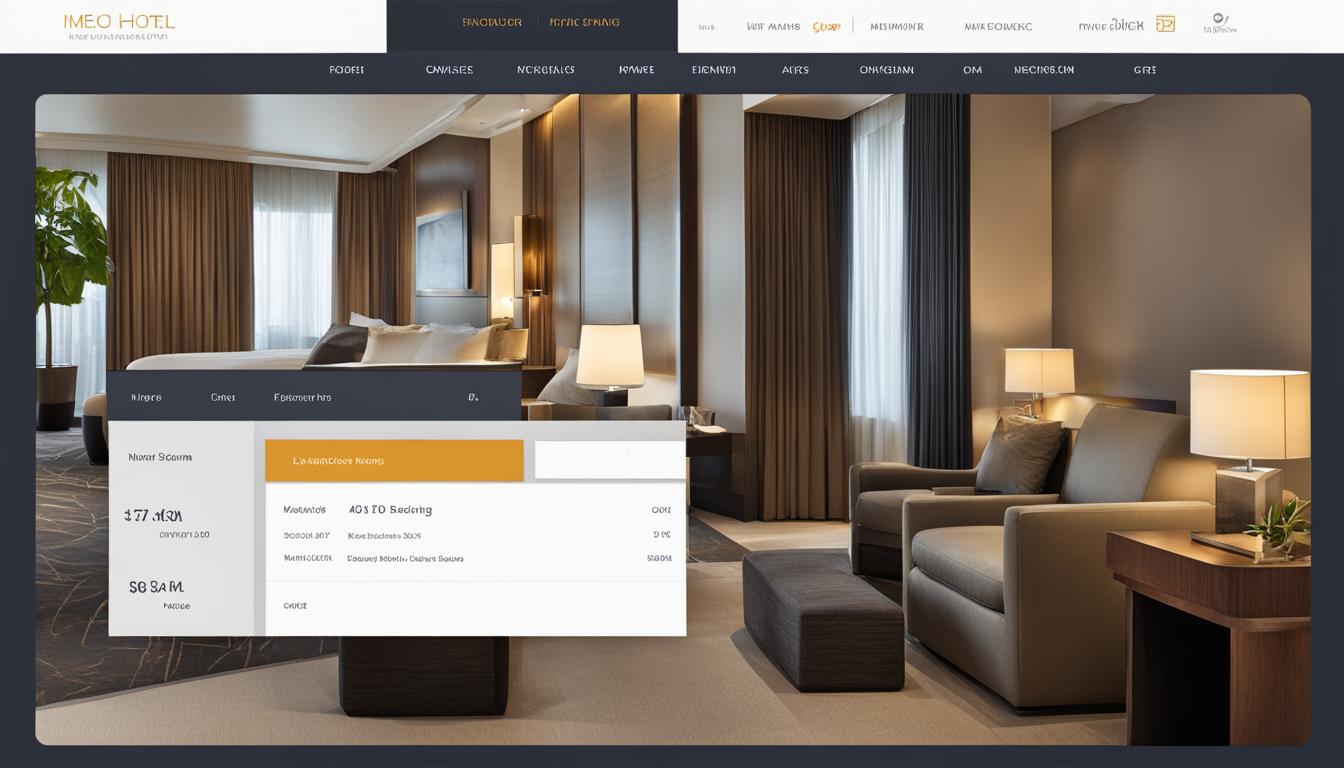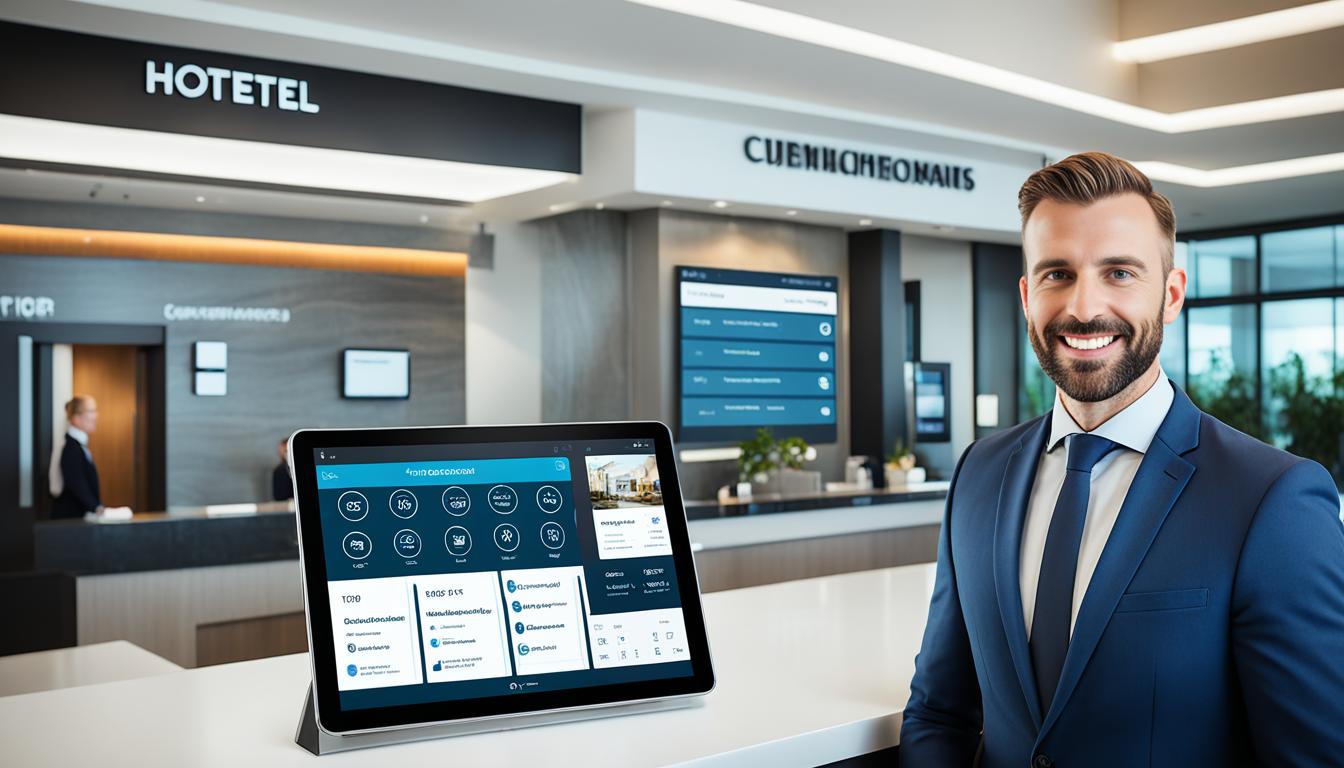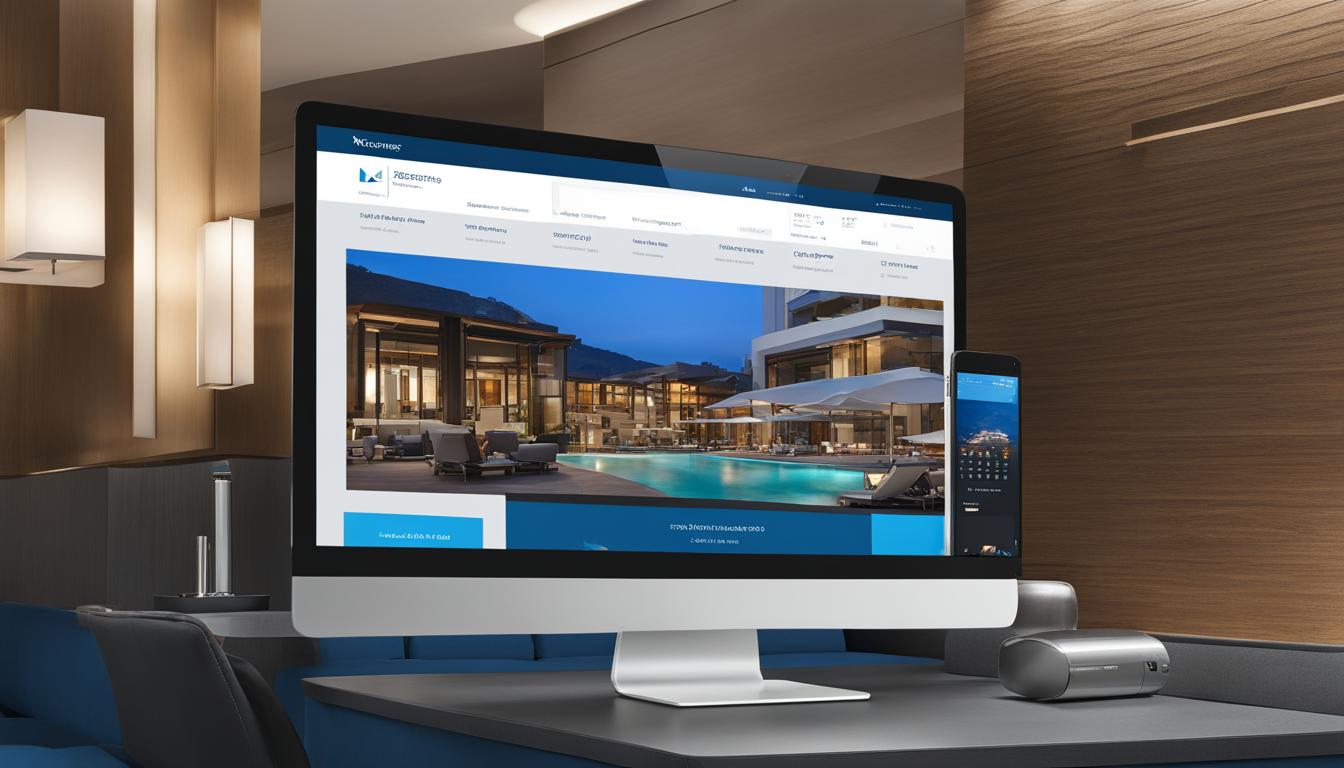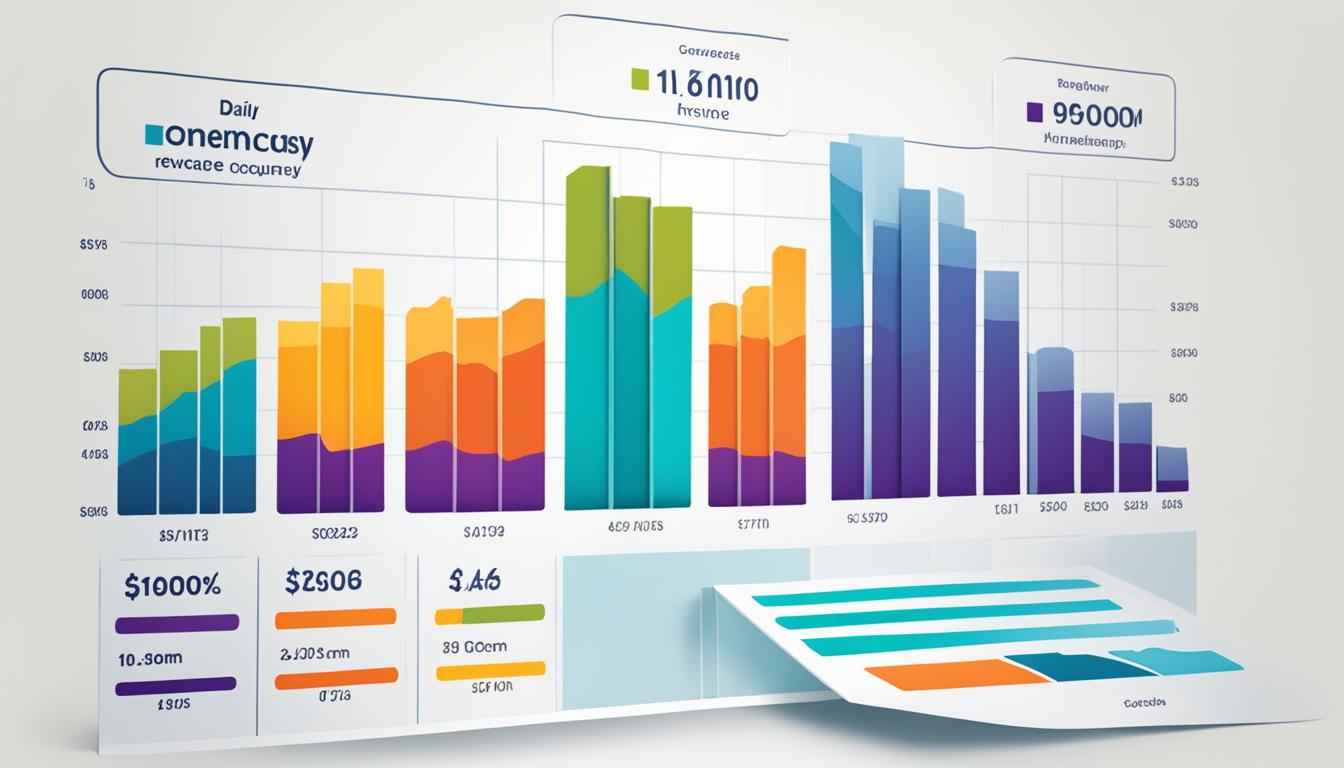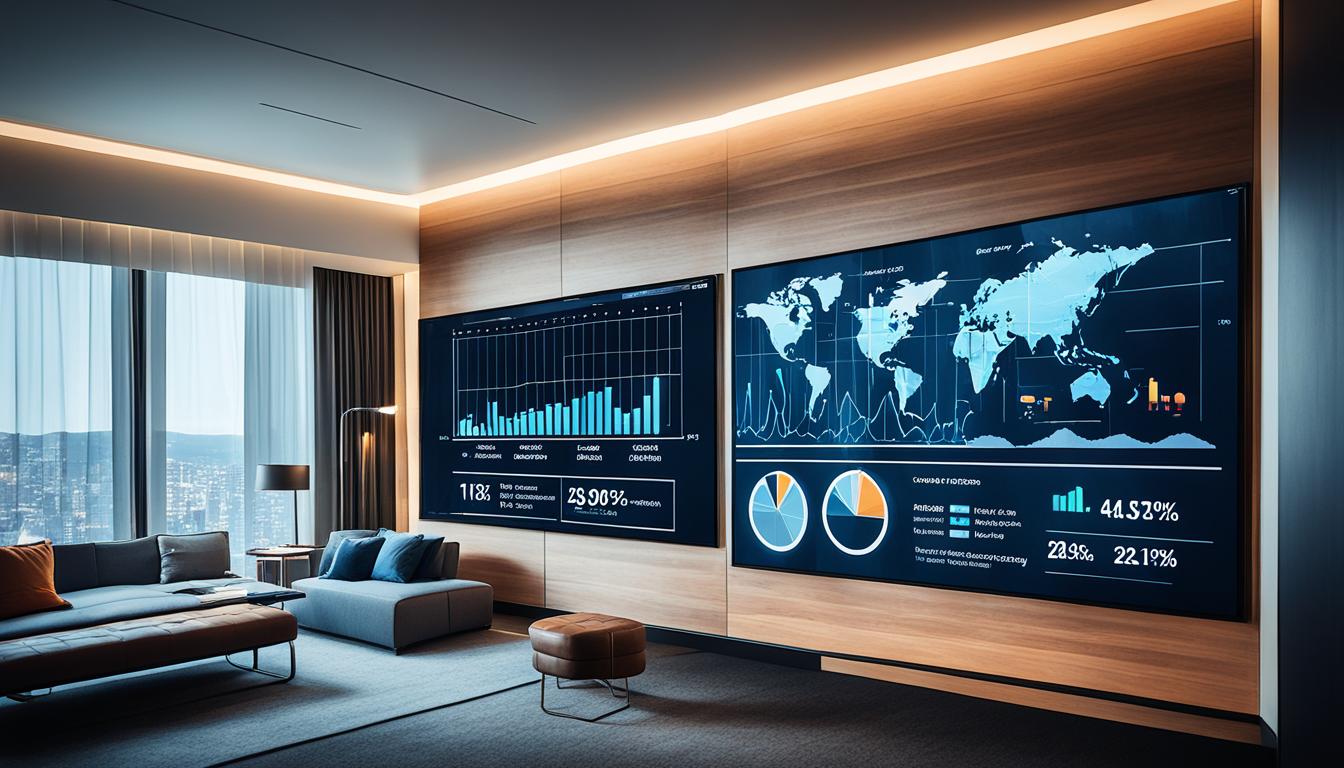Welcome to the world of hotel booking engines, where conversion rates can make or break your business. As a hotelier, you understand the importance of attracting potential guests and turning them into paying customers. That’s why it’s crucial to optimize your booking engine and maximize your conversion rates.
When it comes to hotel booking engines, the competition is fierce. With so many options available in the market, hoteliers need to choose wisely to ensure they are offering a seamless and user-friendly booking experience for their guests. The right booking engine can not only increase your conversion rates but also enhance the overall guest satisfaction and boost your revenue.
In this article, we will explore the various aspects of hotel booking engines and provide you with actionable tips to enhance your conversion rates. We will discuss the features and benefits of the PlanetHMS booking engine, guide you in choosing the best booking engine for your hotel, and share strategies to optimize the booking process. Additionally, we will delve into the importance of tracking and analyzing your booking engine’s performance to make data-driven decisions.
So, whether you’re a small boutique hotel or a large chain, stay tuned to discover how you can leverage the power of a hotel booking engine to drive more direct bookings and boost your revenue. Let’s dive in!
Understanding the Hotel Booking Engine
A hotel booking engine is a vital tool for hoteliers that allows guests to make reservations directly on the hotel’s website. It simplifies the booking process and offers convenience for both the guests and the hotel. One popular booking engine that has garnered praise from the hospitality industry is the PlanetHMS booking engine.
The PlanetHMS booking engine stands out for its robust features and capabilities, making it an ideal choice for hotel businesses. With its user-friendly interface, guests can easily search for available rooms, view detailed descriptions and images, and make reservations seamlessly. The system also supports various room types, rates, and occupancy rules, giving hotels the flexibility to cater to diverse customer preferences.
Furthermore, the PlanetHMS booking engine offers customization options, allowing hoteliers to tailor the booking process to their brand and guest experience. Hoteliers can incorporate their branding elements, such as logos and color schemes, to maintain a cohesive look and feel throughout the booking journey. This level of personalization creates a sense of trust and familiarity for potential guests.
Another standout feature of the PlanetHMS booking engine is its integration capabilities. It seamlessly integrates with other hotel systems, such as property management systems and channel managers. This integration ensures that inventory is always up to date, avoiding the risk of overbookings or conflicting information. Plus, it simplifies operations by centralizing all bookings and guest data in one system, streamlining workflows for hotel staff.
In addition to its core functionalities, the PlanetHMS booking engine provides comprehensive analytics that enable hoteliers to track and analyze performance. Hoteliers can monitor key metrics, including conversion rates, booking trends, and revenue, to make data-driven decisions and improve their business strategies. The system’s reporting capabilities ensure that hoteliers have access to valuable insights at their fingertips.
In summary, the PlanetHMS booking engine is a powerful tool that empowers hoteliers to optimize their direct booking capabilities. Its key features, such as its user-friendly interface, customization options, integration capabilities, and comprehensive analytics, make it a top choice for hotel businesses looking to enhance their online presence and maximize their revenue potential.
How to Choose the Best Booking Engine for Your Hotel
When it comes to selecting the best booking engine for your hotel, making an informed decision is crucial. By considering the right factors, hoteliers can ensure they choose a booking engine that meets their specific needs and delivers maximum value. Here, we’ll outline the key factors you should consider during your evaluation process.
1. Customization Options:
Look for a booking engine that allows you to customize the look and feel to match your hotel’s branding. The ability to tailor the booking process to align with your website’s design creates a seamless experience for your guests.
2. User-Friendly Interface:
An intuitive and user-friendly interface is vital for both your staff and guests. Ensure the booking engine is easy to navigate, with a straightforward booking flow that minimizes steps and reduces friction.
3. Integration with Other Systems:
Consider the compatibility of the booking engine with your existing systems, such as property management systems (PMS), channel managers, and revenue management tools. Seamless integration enables efficient operations and ensures data consistency.
4. Analytics Capabilities:
Opt for a booking engine that provides robust analytics features. The ability to track key metrics such as conversion rates, booking sources, and revenue helps you gain insights and make data-driven decisions to improve your hotel’s performance.
By carefully evaluating these factors, you can confidently choose the best booking engine for your hotel. Remember, the right booking engine plays a vital role in boosting your hotel’s revenue and providing an exceptional experience for your guests.
Strategies to Enhance Conversion Rates
Improving conversion rates is crucial for hoteliers looking to maximize their revenue through their booking engine. By implementing the following strategies, you can enhance your hotel’s conversion rates and boost your online bookings.
1. Optimize the Booking Process: Ensure that your booking process is seamless and user-friendly. Streamline the steps required for the guest to make a reservation, eliminate unnecessary form fields, and implement a clear and intuitive layout.
2. Provide Transparent Pricing and Compelling Incentives: Display accurate room rates, fees, and charges upfront. Offer special promotions, exclusive discounts, or add-ons to encourage guests to complete their bookings.
3. Leverage Social Proof: Showcase positive reviews, testimonials, and ratings from satisfied guests. Display social media shares and endorsements from influencers or popular websites to build trust and credibility.
4. Implement a Mobile-Friendly Design: In today’s digital landscape, many guests prefer to make reservations on their mobile devices. Ensure that your booking engine is fully optimized for mobile, providing a smooth and responsive experience.
5. Utilize Personalized Messaging: Tailor your communication and messaging to the specific needs and preferences of your guests. Implement personalized offers, recommendations, and targeted marketing campaigns to increase engagement and conversions.
By incorporating these strategies into your hotel’s booking engine, you can optimize the conversion funnel and enhance the overall guest booking experience. Increasing your conversion rates will ultimately lead to higher revenues and better business outcomes.
Tracking and Analyzing Performance
Tracking and analyzing the performance of your hotel booking engine is crucial for maximizing conversion rates and optimizing your hotel’s revenue potential. By monitoring key metrics and performance indicators, hoteliers can gain valuable insights into the effectiveness of their booking engine and make data-driven decisions to improve the customer experience and drive conversions.
There are several metrics that hoteliers should focus on when tracking the performance of their booking engine:
1. Conversion Rates
Conversion rates provide a clear indication of how well your booking engine is performing. Monitoring the conversion rates allows you to measure the percentage of visitors who complete the booking process and become paying customers. By analyzing conversion rates over time, you can identify any areas of the booking process that may need optimization.
2. Abandoned Bookings
Tracking abandoned bookings can help you identify potential issues or friction points in the booking process. By understanding why customers abandon their bookings, you can make improvements to increase the likelihood of a successful booking. Gathering data on abandoned bookings can also provide valuable insights into customer preferences and behavior.
3. Revenue and Average Booking Value
Monitoring revenue and average booking value allows you to assess the financial performance of your hotel booking engine. By tracking these metrics, you can identify trends, evaluate the impact of promotional campaigns, and make pricing adjustments to maximize revenue.
To effectively track and analyze the performance of your booking engine, it is recommended to utilize software solutions and tools that provide detailed analytics and reporting capabilities. These tools can offer valuable insights into customer behavior, conversion funnels, and other performance metrics. Some popular software solutions for tracking and analyzing booking engine performance include Google Analytics, KISSmetrics, and Hotjar.
By regularly monitoring and analyzing the performance of your hotel booking engine, you can identify areas for improvement, optimize the booking process, and ultimately increase conversion rates. This data-driven approach empowers hoteliers to make informed decisions and deliver a seamless booking experience to their customers.
Conclusion
In conclusion, maximizing conversion rates for hoteliers using a booking engine is crucial for driving revenue and staying competitive in the hospitality industry. Throughout this article, we have explored various strategies and tips that can help hoteliers achieve this goal.
By understanding the importance of a hotel booking engine, such as the feature-rich PlanetHMS booking engine, hoteliers can empower their businesses with a powerful tool to streamline the booking process, increase direct bookings, and enhance the overall guest experience.
Choosing the best booking engine for a hotel requires careful consideration of customization options, user-friendly interface, system integration, and analytics capabilities. It is crucial for hoteliers to make an informed decision based on their specific requirements and business objectives.
Implementing strategies like optimizing the booking process, providing transparent pricing and compelling incentives, leveraging social proof, designing for mobile compatibility, and personalizing messaging can significantly boost conversion rates. Tracking and analyzing the booking engine’s performance using relevant metrics and key performance indicators (KPIs) is essential for ongoing optimization and revenue growth.
Hoteliers must seize the opportunity to maximize their conversion rates and drive revenue by implementing these proven strategies and leveraging the tips provided throughout this article. For any further inquiries or assistance, readers are encouraged to reach out to [email protected].

